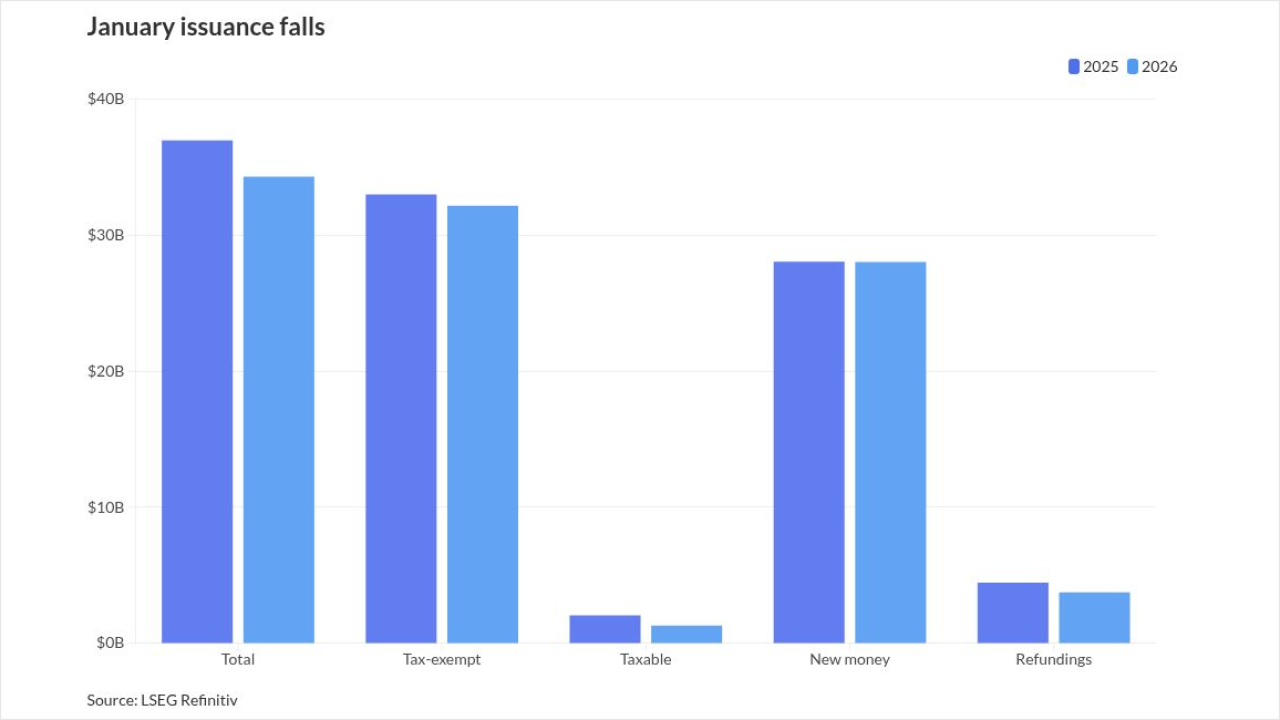
California's
The outlook revision to negative "largely reflects the expectation that the district's financial flexibility will be very limited unless management aligns ongoing revenue with ongoing expenditures," Moody's said in Thursday's report.
The district expects to end fiscal 2025 with a $43.4 million deficit and $58.4 million unrestricted fund balance, roughly 7% of spending, according to Moody's.
The district operates 81 schools in grades TK-12 with projected enrollment of 33,655 in fiscal 2026, Moody's said.
Moody's assigned an A1 rating to three series of bonds Siebert Williams Shank & Co. plans to price: $176.8 million Series 2025A GOs, $8.1 million Series 2025B taxable GOs and a $76.5 million GO refunding.
Post issuance, the district will have about $1.2 billion in long-term debt, Moody's said. Isom Advisors, a division of Urban Futures, is municipal advisor and Orrick, Herrington & Sutcliffe is bond and disclosure counsel, according to school board
Moody's said its A2 issuer rating incorporates the district's favorable economic factors, such as strong property wealth, with assessed value per capita reaching $200,685 and resident income that is slightly above the U.S. average/median. These positive factors are balanced against continued enrollment declines and a weakened, yet still adequate, financial position, Moody's said.
The A1 rating on the district's general obligation unlimited tax bonds is one notch higher than the district's issuer rating, Moody's said. The one-notch distinction reflects California school district GO bond security features that include the physical separation through a "lockbox" for pledged property tax collections and a security interest created by statute, according to the rating agency.
On Sept. 15, Fitch Ratings downgraded the school district's issuer default rating to BBB from BBB-plus and its GO bond rating to AA-minus from AA.
Fitch cited significant financial headwinds, including failed school consolidation plans, a teacher's strike and expiring pandemic funds in its downgrade. It also assigned a negative outlook, pointing to ongoing structural challenges, potential liabilities from lead contamination and irresolute decision-making on school closures.
The issues Fitch cited date back to 2022, when the district reversed a plan to close and consolidate schools to address budgetary challenges stemming from declining enrollment and underutilized facilities.
Then in 2023, a teachers strike led to labor agreements with sizable increases as one-time pandemic funding from the federal government expired. In April 2025, the school board declined to pursue the superintendent's second plan to close and consolidate schools and subsequently approved a voluntary separation agreement with the superintendent despite two years remaining in her contract, Fitch said.
The district has used one-time solutions to reduce deficits and keep projected reserves above the state's 2% minimum in fiscal 2025 and 2026, but Fitch said if it doesn't undertake a more comprehensive operational restructuring, persistent structural challenges may make maintaining reserve levels above the state-required minimum difficult.
If the district fails to make progress adjusting operational imbalances leading to further deterioration in reserves and liquidity, it could face a downgrade, Moody's said.





